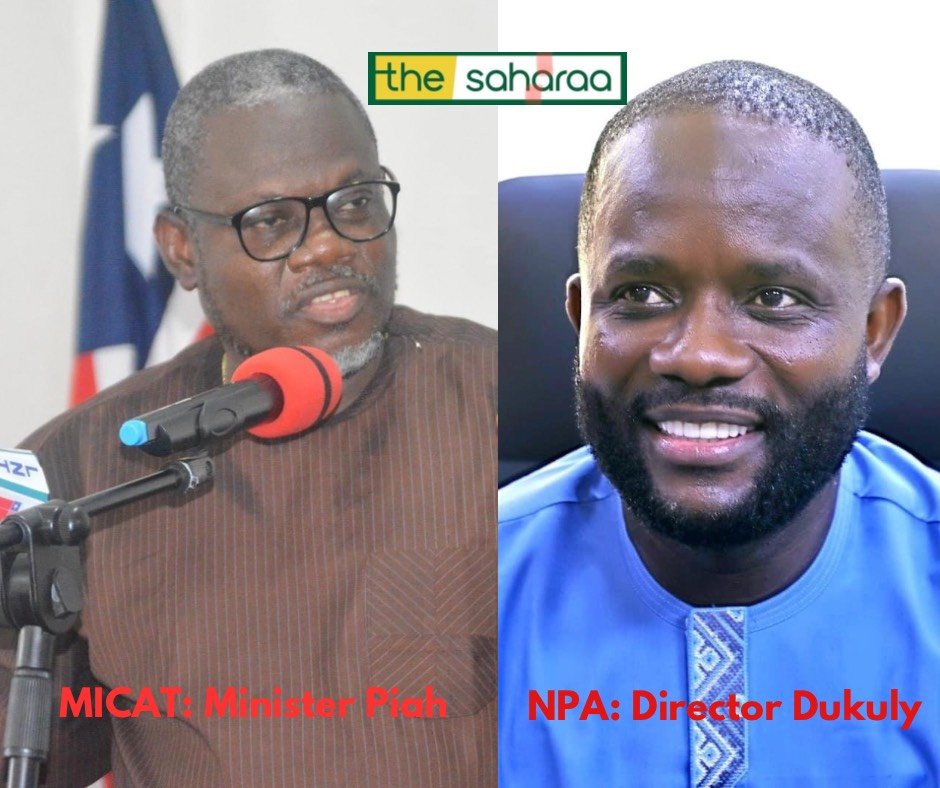Monrovia, Liberia (The Saharaa) – In a troubling revelation that casts a shadow over the Boakai administration, conflicting statements from high-ranking officials have sparked concerns about transparency and governance. At the heart of the controversy is the acquisition of 258 earth-moving machines, a deal shrouded in confusion and potential impropriety.
During a regular press briefing held by the Ministry of Information, Cultural Affairs, and Tourism (MICAT), Information Minister Jerolimek Piah attempted to clarify the situation, stating that no final decision had been made regarding the procurement of the equipment. According to Piah, the recent update provided by the Minister of State without Portfolio was merely an informational briefing, not indicative of a concluded agreement.
Minister Piah emphasized the legal processes involved, assuring the public that any acquisition would adhere to proper procedures and urging patience until an official conclusion was reached. However, his statements were contradicted by a post from the National Port Authority (NPA) boss, Sekou Hussein Dukuly, on social media. Dukuly claimed that $52 million had already been spent on the equipment deal, with the funds sourced from South African businessman Robert Gumede.
The glaring inconsistency between the two officials’ accounts raises critical questions about the integrity of the Boakai administration’s internal communications and financial oversight. How can Minister Piah assert that no decision has been finalized while Manager Director Dukuly boasts about a substantial expenditure and the involvement of an international financier?
This apparent discord not only undermines public trust but also hints at deeper issues within the government’s handling of large-scale procurement projects. The lack of a unified narrative suggests either a breakdown in internal processes or, worse, an attempt to obfuscate the true nature of the transaction.
Critics argue that this incident reflects poorly on President Joseph Boakai’s leadership, highlighting a potential lack of control and coordination within his administration. The discrepancy has led to calls for a thorough investigation to determine the facts and ensure accountability.
The involvement of Robert Gumede, a figure with significant business interests in the region, further complicates the matter. Transparency advocates are demanding more details about his role and the terms of the financial agreement, wary of potential conflicts of interest and undue influence.
As the public awaits a clear and truthful explanation, this debacle serves as a stark reminder of the importance of transparency and accountability in government dealings. The Boakai administration must act swiftly to rectify the situation and restore confidence in its ability to manage the nation’s affairs effectively. Until then, the shadow of doubt looms large over the presidency, with many questioning whether this is a sign of more systemic issues within the government.
The conflicting statements from Minister Jerolimek Piah and NPA boss Sekou Hussein Dukuly expose a troubling lack of coherence and transparency within the Boakai administration. The discrepancy over the earth-moving equipment deal not only damages the government’s credibility but also raises urgent questions about the integrity of its procurement processes. Only a thorough investigation and a commitment to transparent governance can begin to address the concerns now swirling around President Joseph Boakai and his leadership.

